DENTISTRY
Smiles better cosmetic dentistry in Brighton and Hove
Our vast experience in cosmetic dentistry helps to transform people’s confidence and, in turn, make a positive difference in their lives. The benefits of our award-winning cosmetic dental treatments go beyond enhancing your smile. Get in touch to discuss how we can help and what we can offer you.
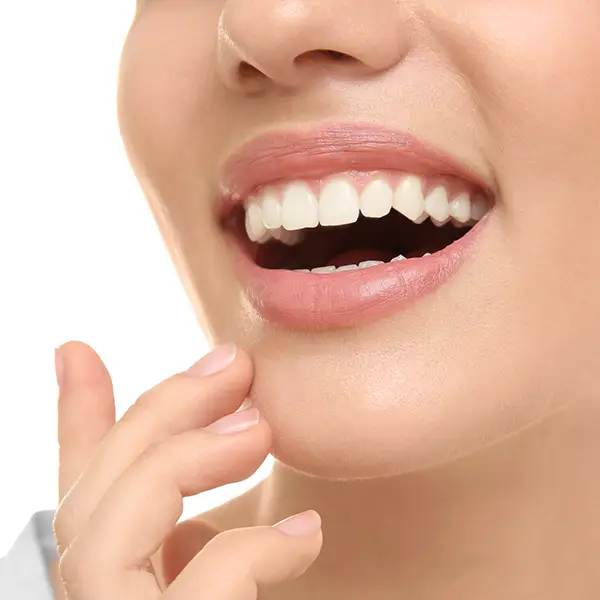
COSMETIC DENTISTRY IN BRIGHTON
AND HOVE

Cosmetic Bonding
Cosmetic bonding, or composite bonding, is a natural, minimally invasive and cost-effective technique used to improve the appearance of your teeth and your overall smile.
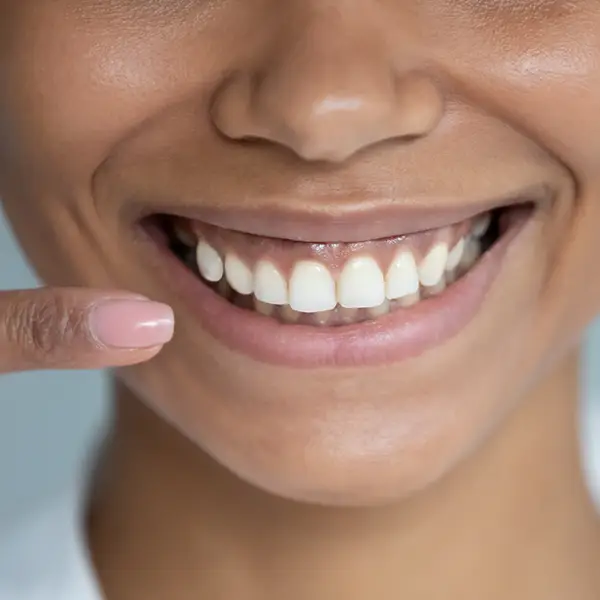
Dental Implants
Dental implants can be the next best thing to a natural tooth and can replace a lost tooth so that it looks, feels, and functions like your normal teeth.
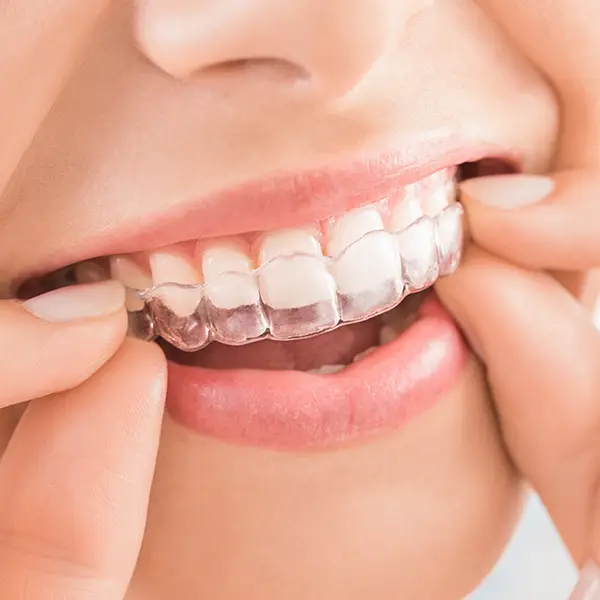
Teeth straightening
Invisalign’s® invisible, removable, and comfortable aligners will give you the beautiful straight teeth you’ve always wanted. And best of all, no one can tell you’re wearing them.
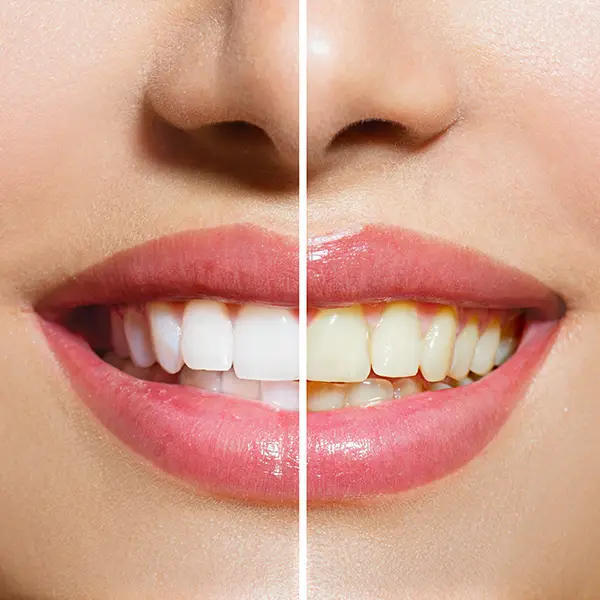
Teeth Whitening
So many of life’s little pleasures, such as coffee, red wine, turmeric, or smoking, stain or discolour our teeth. You can choose from our two whitening systems to solve this problem.
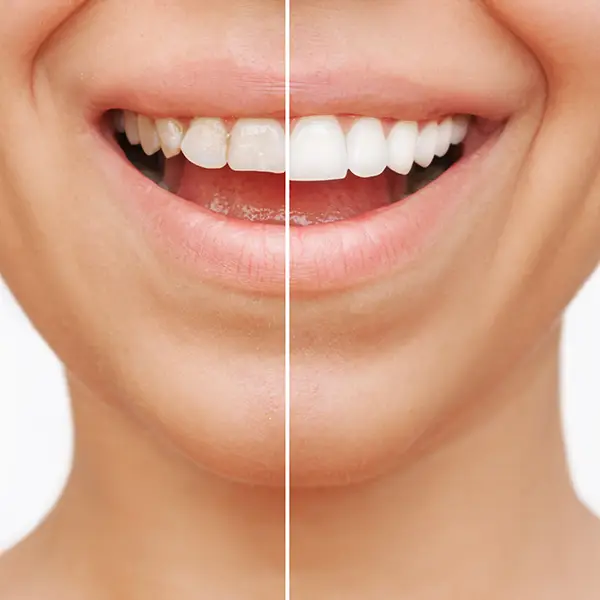
PORCELAIN VENEERS
Veneers are thin, layered shells of porcelain or composite which can be attached to the teeth. They are used in situations when teeth are damaged, chipped, excessively stained, or worn.
Discover the power of a beautiful smile in Brighton and Hove
With our state-of-the-art dental practice on your doorstep, it’s never been easier to revitalise your smile and achieve optimal dental health.
Get in touch to discuss taking the first step towards your dream smile.
Cosmetic Bonding
Your dream smile is closer than you think
Cosmetic bonding, or composite bonding, is a natural, minimally invasive and cost-effective technique used to improve the appearance of your teeth and your overall smile.
The world of cosmetic dentistry is constantly evolving, with the focus shifting to minimally invasive treatments and the preservation of tooth structure. Composite bonding is at the forefront of this revolution as it can transform the appearance, shape, shade and colour of teeth on the same day, with the minimum amount of alteration made to the fundamental make-up of your teeth.
It involves shaping small amounts of composite (resin-based material) and placing these on the tooth surface to improve shape and give you your dream smile.
- Composite – the tooth-coloured filling material
- Bonding – the mechanical process whereby the material is attached to the teeth
Composite bonding
Teeth can vary in shape, size and colour, due to the way they have developed, dental trauma, or from the cracks, chips and stains that can accumulate with the general wear and tear of life.
Composite bonding can address virtually all of these problems by adding a tooth-coloured filling material and “bonding” it to the natural tooth. This material is hand-sculpted to a desired shape to create a natural-looking grin. A wide variety of shades are available to ensure the colour matches perfectly.
The main benefits are:
- No needles or injections
- No drilling of the natural tooth structure
- The procedure is reversible
- Same day result
Composite bonding vs Composite veneers
Composite bonding is usually reserved for situations where small chips require repair. Subtle changes to the tooth’s shape and length can also be made. Composite veneers, on the other hand, work by covering the complete front surface of the tooth, enabling larger changes in shape and form.
Usually, four to six composite veneers are done to the front teeth for a same-day smile makeover. Both are great options if you are looking for a fast and gentle way to get the perfect smile. Composite bonding can be used to correct:
- Chips
- Discolouration
- Spacing irregularities
- Drawbacks
Composite tooth-coloured filling material, like any other dental material, will deteriorate with time. As a result, the solution isn’t as permanent as other restoration techniques like veneers or crowns. However, with good personal care, they can maintain their appearance for years.
Composite bonding vs porcelain veneers
Composite bonding is a single-session treatment which is perfect for correcting smaller imperfections, chips, cracks and minor spacing between the teeth. Veneers, by contrast, are lab-made, ultra-thin sheets of ceramic material shaped to fit onto the teeth. They usually require some removal of the tooth structure to create enough space for the veneer to attach. They are normally recommended for larger imperfections of the teeth and as they are lab-made, are more costly than composite bonding.
The procedure
At the Windmill Dental Practice, we use rubber dam isolation for all our adhesive procedures. The tooth/teeth are isolated with a rubber dam, the tooth surface is thoroughly cleaned and then prepared with a gel that roughens the surface microscopically.
The putty-like composite resin material is then applied using special instruments and brushes to sculpt to the desired shape, often in several layers. Using a special light, the material is then hardened. Further layers can then be added accordingly. The procedure is then completed with smoothing of the tooth surface and polishing.
BIOCLEAR MATRIX SYSTEM FOR REMOVAL OF BLACK TRIANGLES
The BioClear (Clark) matrix system which uses uniquely shaped plastic templates with flowable composite that can be moulded around your teeth, closing black triangles and restoring your attractive smile.
Composite Bonding Prices
Composite Bonding – from £250 per tooth.
(Practice Plan patients will receive a 20% discount for any additional hygiene appointments that fall outside those within their initial plan and we do offer 0% finance for treatments over £1000 to help spread the cost).

Dental Implants
The gold standard for replacing missing or extracted teeth
Dental implants can be the next best thing to a natural tooth and can replace a lost tooth so that it looks, feels, and functions like your normal teeth.
They are in most cases a long-term solution to missing teeth. They are placed into healthy bone and can last many years and even a lifetime. They still need to be looked after and cleaned well just as your natural teeth do, otherwise can lead to the need for maintenance or repair.
Removable dentures that move in your mouth can be uncomfortable, and lead to altered speech! Dental implants will allow you to speak normally! They will also help to:
- Retain your natural face shape and smile as missing teeth can give your face a sunken appearance
- Let you eat your favourite foods as they are fixed in the bone and therefore allow you to bite naturally
- Protect your natural teeth
Dentures and bridges often result in compromising the natural health of your surrounding teeth as the teeth on either side need to be ground (drilled) away to make room for the bridges, and dentures put extra forces on surrounding teeth and compromise gum health and cleaning.
If a space is un-restored after a tooth is lost, then this can result in the surrounding and opposing teeth drifting into the space, which can cause problematic changes in your bite. You will also lose bone around the area.
Implants have been shown to be the restoration of choice compared to a denture/bridge.
FAQs
What is a dental implant?
A dental implant is an artificial replacement for the root of a tooth. It fuses to the top or bottom jaw bone and a false tooth (crown) is then added to it. We refer all our implant placements to the prestigious Implant Centre.
The dental implant itself is divided into three components:
- The implant: which is a titanium tube which is placed in the bone where the missing tooth is.
- The abutment: which is a connector, connecting the dental implant to the crown
- The crown: which is the bit you see in the mouth – the artificial tooth which is made in a laboratory and designed to blend in with your own teeth. This part will be carried out at our practice.
How long does the treatment take?
The placement and restoration of a dental implant usually takes between six weeks -six months depending on the health of the gums and bone. This will be discussed more at the consultation with the Implant Centre. Once the implant is happy in its new place then we will place the crown on top here at the practice.
How much do dental implants cost?
The cost is dependent on the amount and quality of bone that you if have but if everything is healthy then the cost will be approximately £2500.

Dental Implants
Invisalign’s® invisible, removable, and comfortable aligners will give you the beautiful straight teeth you’ve always wanted. And best of all, no one can tell you’re wearing them. Invisalign is great for adults and teenagers.
What is Invisalign®?
Invisalign® is the invisible way to straighten your teeth without braces. Invisalign® uses a series of clear, removable aligners to straighten your teeth without metal wires or brackets. Invisalign® has been proven effective in clinical research and in orthodontic practices nationwide.
How does Invisalign® work?
You wear each set of aligners for about two weeks, removing them only to eat, drink, brush, and floss. As you replace each aligner with the next in the series, your teeth will move little by little, week by week – until they have straightened to their final position.
You’ll visit us about once every six weeks to ensure that your treatment is progressing as planned
A product of ground-breaking technology
Invisalign® is a product of ground-breaking dental technologies. At the beginning of the process, your oral cavity is profiled using technologies such as 3D scanning and X-rays. Impressions of your teeth as well as natural movement of the teeth are also recorded.
Afterwards, dentists proceed to design the treatment process for you.
Your specifications are forwarded to the manufacturer of the aligner trays. Each aligner tray is built to your exact requirements. Using the proprietary SmartTrack® material, the aligner trays are virtually invisible and highly resistant.
Invisible Braces
People will barely notice they are there, if at all. Invisalign offers alignment treatment with similar effects to that of conventional braces without affecting how you look. Made of special plastic material, there are no metal or hard materials to irritate the gums or other parts of the mouth.
Any discomfort felt, especially during the beginning of the process, may occur from the plastic aligner gently pushing the teeth into the right location. As aligners are replaced periodically, the treatment adapts to the progress of your teeth alignment.
If you are interested in Invisalign’s® invisible aligners please don’t hesitate to bring it up at your next dental appointment or call us to arrange a consult appointment at a time convenient for you! Visit The Invisalign® website for more details

Dental Implants
A fantastic, radiant smile
to be proud of
So many of life’s little pleasures, such as coffee, red wine, turmeric, or smoking, stain or discolour our teeth. You can choose from our two whitening systems to solve this problem.
FAQS
Is teeth whitening safe?
Yes, if carried out by a dental professional. Studies have shown that whitening teeth using this technique is perfectly safe on teeth, cheeks and gums. There are problems with the bleaching kits that are purchased over the counter. Although they are inexpensive, they normally contain an acid rinse, which can thin down the enamel of the teeth and cause significant and irreversible tooth damage.
It is important to understand that existing crowns and fillings will be unaffected by the whitening process and may present an aesthetic problem when whitening of the remainder of the teeth occurs. We can discuss with you how important this may be in your mouth.
How long does teeth whitening take?
This depends on the amount of lightening you want to achieve and the original shade of the teeth. If your teeth are quite dark or very yellow or grey or if you have antibiotic staining it will take longer. If you wear your custom-made trays for at least 3-4 hours in the day and/or wear the trays overnight for 14 consecutive days you will get the fastest results.
If you cannot wear the trays for a few days because of life getting in the way or if your teeth become sensitive, it does not matter. You can whiten your teeth according to your own schedule.
Are there any side effects to teeth whitening?
Sensitivity to teeth is the most common side effect. This occurs usually around the necks of the teeth where the gums may have receded. If you are experiencing any sensitivity you should stop whitening your teeth. You can resume after about 2-3 days. Putting toothpaste for sensitive teeth into the bleaching trays overnight will usually stop the sensitivity faster.
Alternatively, you can rub the de-sensitising toothpaste into the gum margins with your finger five times per day for a few days. These symptoms always disappear within 1-3 days after interruption or completion of the treatment. We also have a milder whitening gel available designed for people whose teeth are generally a bit sensitive anyway. If you have sensitive teeth it will probably just take you a bit longer to get the colour change you want.
How long do teeth whitening results last?
Normally the new whiter colour of your teeth keeps very well. This is, however, lifestyle dependant. If you smoke or drink lots of coffee, red wine, etc. your teeth may darken again slightly over time. You can buy individual tubes of whitening gel from us if needed to ‘top up’ the colour every 6 -12 months. Use the gel in the original trays as before for just 1 or 2 days/nights.
How will it feel?
your teeth will feel very clean, fresh, and brighter after the whitening procedure. The gel also has an indirect but positive effect on gum health.
What happens if my teeth do not whiten as much as I want?
Rarely, even after using all the provided gel as directed, you will not get the desired colour change or you may even get some uneven whitening. Please do not worry. You may need a stronger whitening gel or/and to continue the process over a longer period. Some teeth just require more effort to get them to change colour. We will advise you (and there may be an additional charge if further tooth whitening gel is needed).

Dental Implants
Restore your smile.
Reclaim your confidence
Veneers are thin, layered shells of porcelain or composite which can be attached to the teeth. They are used in situations when teeth are damaged, chipped, excessively stained or worn.
They can also be used to alter the shapes of teeth and close gaps between teeth. While composite bonding has become very popular, veneers, if they are well looked after, can last longer and leave you with a stunning smile. Veneers are not particularly invasive and often require minimal if any natural tooth adjustment.
Benefits of veneers
Veneers are a quick way to correct any minor discrepancies in tooth shape. Usually, they are made of porcelain and are performed on 4-6 teeth so that the new teeth appear brilliantly white and are kept uniform.
Minor orthodontic discrepancies can be camouflaged with porcelain veneers which could be beneficial if you would prefer not to have orthodontic treatment.
If any defects or deep stains have developed in the tooth, or it’s been traumatised, porcelain veneers can mask these where whitening or composite bonding might fail.
If the underlying enamel has been damaged, porcelain veneers can be used to improve the appearance, shape and symmetry of your smile
Disadvantages of veneers
Porcelain veneers can be more costly than other smile makeover treatments such as composite bonding, as the veneers are made and processed in a specialised lab by a master ceramist.
Some of the tooth structure is adjusted and removed. This is an irreversible procedure where composite bonding is less invasive. In rare cases, this can cause sensitivity after the porcelain veneers have been placed on the teeth.
FAQs
Is there any pain after veneers?
Rarely there may be some mild sensitivity but on the whole, there is no pain because very little or no tooth tissue is removed.
How will I know if I like them?
The dentist providing the veneers will look at the current shape of your teeth, their colour, your facial and gum contours as well as things like lip position and tooth symmetry to decide on the character and profile of the veneers.
The dental lab can even build a waxed version attached to a study model of your teeth so you can trial the smile before any treatment begins.
How much do veneers cost?
Veneer From £750 per tooth.
(Practice Plan patients will receive a 20% discount (excluding laboratory fee) and we do offer 0% finance on treatments over £1000 to help spread the cost).

“Aesthetic medicine is an absolute joy for me. I used to work as a celebrity Make Up Artist and I adore using my skill-set for my patients to help them become the best version of themselves!”